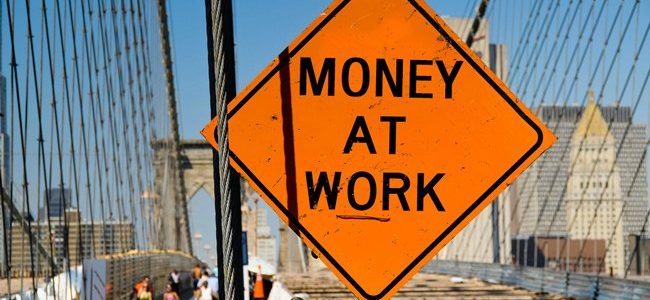795 Euro monatlich braucht ein Rentner in Deutschland zum Überleben. Das ist der durchschnittliche Alters-Grundsicherungsbedarf, den das Bundesamt für Arbeit und Soziales ermittelt hat. Das Problem: Weniger als die Hälfte der Deutschen können mit ihren heutigen Jobs eine Rentenausschüttung dieses Betrags – geschweige denn eines höheren – überhaupt erwirtschaften.
I won’t get much more than €1200 when I retire, and nor will most of you
Every year in the spring, I get post from the „Deutsche Rentenversicherung Bund“, providing information about my future state pension. What the letter says is scary.
First of all, it reminds me that I will have to work until 2037 (I will be 67 by then) to get my full pension. OK, I like working, but can I really trust the state that 2037 stays 2037, and doesn’t become 2040 (I will then be 70), or 2045 (I will then be 75)? Hardly, because there is still plenty of time for future governments to change the rules of the game until then.
And they will! The German population is stagnating, and getting older and older (the current median age is 47, i.e. 50% of the population is older than 47…). So there will be more pensioners, and fewer people in work. So the state won’t be able to keep its promise: pensions are paid by people in work, nobody else.
Für die meisten Menschen macht ‚Riester‘ wenig Sinn, und ist eine schlechte Investition
Riester is a ’no brainer‘ investment. What can you lose? Nothing. What can you win? Nothing.
‚Riester‘ is a badly designed product. The intention was good, but the execution went wrong. If you like the idea of the state (politicians) and bank managers holding your hand, know that it comes at a cost. There is no free lunch.
- The fees: now, i.e. when you buy (typically 5%)
- The fees: during the saving phase
- The fees: when you retire (typically 1.5% of the capital, annually!)
- The lower tax now, but the tax later?
- The lack of control in the investment strategy (due to the capital paid-in being guaranteed….)
- The dismal performance so far, due to the assets being bought that bring no return
- The lack of control in investment strategy once you retire
Riester is great as there is no risk (capital is guaranteed). But the return will most likely be nil.

